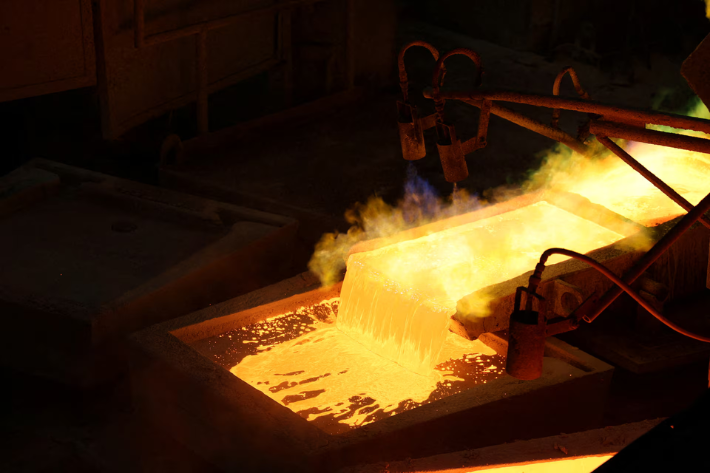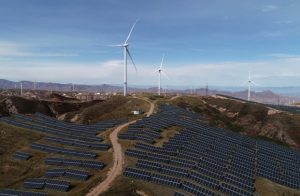Climate change could disrupt at a least a third of the world’s chip production by 2035, and more than half by 2050, particularly by hurting the industry’s copper supply, advisory firm PricewaterhouseCoopers (PwC) said in a report for business leaders on Tuesday.
Copper is used to make the billions of tiny wires inside every chip’s circuit and mining for the metal is an incredibly water-intensive process.
The US Geological Survey estimated in 2016 that the global copper industry used about 5,300 gigalitres of water to extract 20.1 million tonnes of the metal annually. That’s 10 times the amount of water in the Sydney harbour, according to Australian engineering firm Worley.
Also on AF: China Warns US, SE Asia: We’ll Hit Back on Supply Chain Deals
But a rapid increase in global warming and unprecedented climate change threatens the availability of water to the industry. By 2035, most of the 17 countries supplying copper to the chip industry will be at risk of drought, PwC said.
Copper miners from China, Australia, Peru, Brazil, the US, Democratic Republic of Congo, Mexico, Zambia and Mongolia will all be affected, it said, adding that none of the world’s chipmaking regions will be spared from the risk.
Chile, the world’s largest copper producer, already grapples with water shortages that are slowing down production.
Those risks mean that some 32% of global semiconductor production could face climate change-related copper supply disruptions by 2035, it added.
The risk will only increase over time if innovation on materials does not adapt to climate change, and affected countries don’t develop a more secure water supply, PwC said.
“Around half of every country’s copper supply is at risk by 2050 – no matter how fast the world reduces carbon emissions,” the report says. There is currently no match for copper’s price and performance.
Not the first warning
The last global chip shortage, fuelled by a pandemic-driven demand spike that coincided with factory shutdowns, crippled the automotive industry and halted production lines across other chip-dependent sectors.
“It cost the US economy a full percentage point in GDP growth and Germany 2.4%,” PwC project lead Glenn Burm said in the report, citing the US Department of Commerce.
The warning from PwC on the risks from climate change to global chip supplies is not a first. Last year, US consultant Bain & Company warned in an analysis that unpredictable weather changes are raising the risks of a potential chip shortage ahead, particularly as incidences of drought could derail wafer fab operations.
The risk has put global chipmaking leaders and their water use under scrutiny. For instance, Taiwan’s TSMC — the world’s largest maker of contract chips — can consume about 10 million gallons of water per day.
Mismanagement of its water supply could cost TSMC 10% of its production by 2030, S&P Global has warned.
Meanwhile, worries of a looming copper shortage have also been looming since at least 2022. At the time, S&P Global said that a demand shortfall for copper could reach 9.9 million metric tonnes by 2035.
- Reuters, with additional editing and inputs from Vishakha Saxena
Also read:
Will Extreme Weather Break Asia’s Supply Chains?
Firms Underestimating Risks From Carbon-Fuelled Climate Change
Floods or Drought: Climate Change Worsens Global Water Woes
AI Data Centres Using Much More Water Than Expected
Another Chip Shortage Looms as AI Frenzy, Climate Change Bite
Asian Economies at Risk From Inaction on Climate Change: ADB
Asian Steelmakers Failing on Shift to Renewables, Survey Finds
Spending on Global Energy Transition Well Under What’s Needed
Carbon Removals Not Growing Fast Enough For Climate Goals
Fossil Fuels Set to Drive Global Emissions to a Record, Yet Again
Trump Tariffs Could Boost Demand For Renewables: Think Tank























